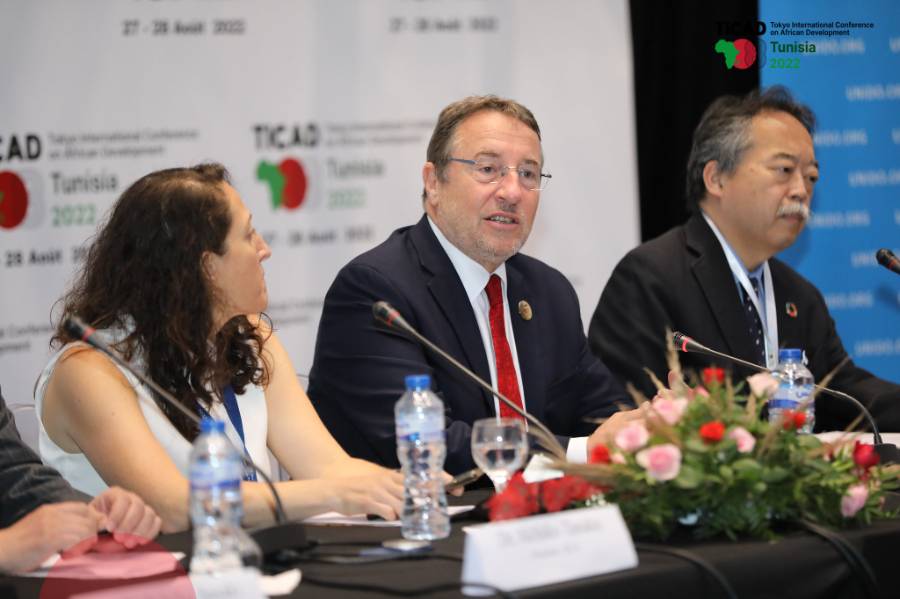News
News
JICA, JETRO, UNDP and UNIDO join forces to support innovation and investment between Africa and Japan
A partnership aimed at contributing to sustainable growth and development in Africa through enhanced partnerships with the Japanese and African private sectors will be launched on Sunday, on the sidelines of the 8th Tokyo International Conference on African Development (TICAD 8) held on 26 and 27 August.
The agreement on this partnership will be signed between the Japan External Trade Organisation (JETRO), the Japan International Cooperation Agency (JICA), the United Nations Development Programme (UNDP) and the United Nations Industrial Development Organization (UNIDO), said a statement issued by these organisations.
This quadripartite partnership is an upgrade of the tripartite partnership launched between JICA, JETRO, UNDP during TICAD 7 held in Yokohama, Japan, in 2019.
The partnership has so far helped improve the start-up ecosystem and promoted the increase of Japanese business portfolio and investments in Africa through the organisation of a series of business seminars, showcase events and business matchmaking, according to the same source.
In addition, Dr. Zakhama noted that the investment opportunities remain enormous: The healthcare conditions in Africa are unfortunately still difficult, stating for example that the infant mortality rate is sometimes 10 times higher than international averages. Moreover, according to the available statistics, funds allocated to the health sector are sometimes as small as 1% of the overall national budget in African countries. Hence the need for more investment in the healthcare sector.
Dr. Zakhama also highlighted the Japanese commitment to improving healthcare conditions in Africa through knowledge transfer. However, he also acknowledged that several obstacles hinder the growth of investment: lack of funding, the complexity of certain issues such as health visas, and the limited number of air links with the target countries.
In this regard, Dr. Tahar Enneifar, President of the National Federation of Health, noted that despite its achievements, Tunisia must further develop certain features, especially its attractiveness and accessibility through the generalization of electronic visas.
Mr. Ghazi MEJBRI, SMEDI CEO and president of the Association of Companies supporting medical services, stated that it is necessary that investments target priority sectors, such at home care, and the multiplication of diagnostic and care centres.










